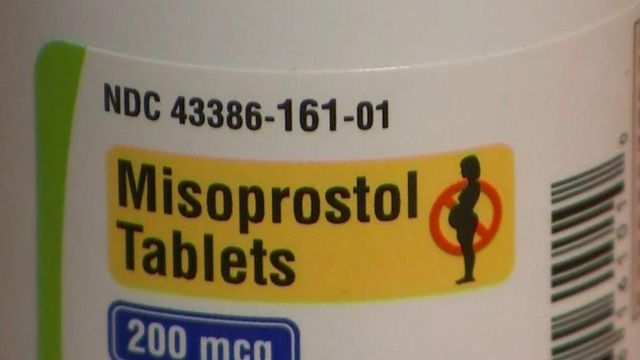What a Supreme Court case on abortion access could mean for NC patients
The Supreme Court will decide how people can access the abortion pill used by millions of women.
Mifepristone is one of the two pills taken together for most medical abortions. This case comes down to how it’s prescribed, delivered and how far along in the pregnancy it can be taken. A group that’s against abortion argues the Federal Drug and Food Administration overlooked safety problems when it made the drugs easier to access in both 2016 and 2021.
In 2021, the FDA lifted medically unnecessary in-person dispensing requirements for mifepristone, including allowing it to be mailed directly to patients. Prior to that In 2016, the FDA changed its labels to allow use at home, up to 10 weeks. It also allowed for any authorized healthcare provider to prescribe the medication, as opposed to just physicians.
“Each one of those safety precautions has been removed by the FDA to advance a political agenda in the last few years,” said Tami Fitzgerald, the executive director of NC Values Coalition. “Those precautions were in place for 16 years, but they've all been removed now.”
A study by Guttmacher Institute shows more than 63% of abortions in the country are induced using this method – instead of surgery. The Guttmacher Institute is a nonprofit that supports abortion access and researches reproductive health issues across the world.
In North Carolina, specifically, medical abortions were used about two-thirds of the time in 2021.
“It's convenient to use in the privacy of your own home. For many people, it's perceived as having a miscarriage, and it's just a lot simpler and easier of a way to expel a pregnancy,” Triangle-area OBGYN Dr. Amy Bryant explained.
Bryant said the drug has been proven safe and effective. North Carolina physicians already have to provide the drug, have an in-person visit with the patient, and be present when it’s given. Bryant sued the state for these requirements.
“It puts more barriers in place for people who are seeking medical abortion, even in North Carolina, where we already have restrictions in place,” she said.
If SCOTUS decides to reverse the FDA’s regulations, North Carolinians could see less drastic changes compared to some other states. However, it could affect how long a patient has to end their pregnancy.
“It may strengthen the regulations that we have here,” Fitzgerald said. “It might provide more safety for women and girls seeking to do an abortion by the use of abortion drugs.”
The drug is still fully available while the Supreme Court deliberates. A decision is expected this summer.











